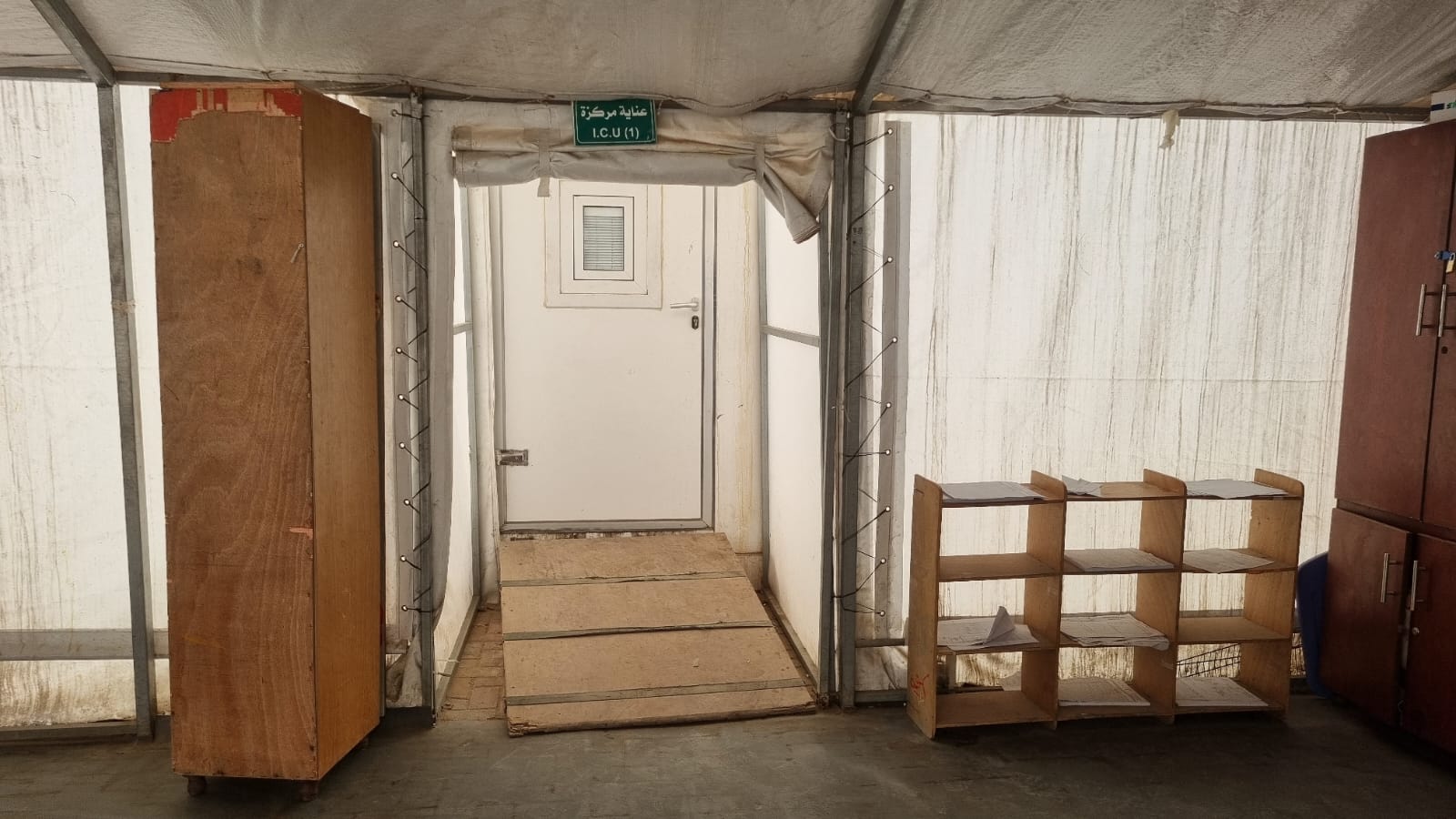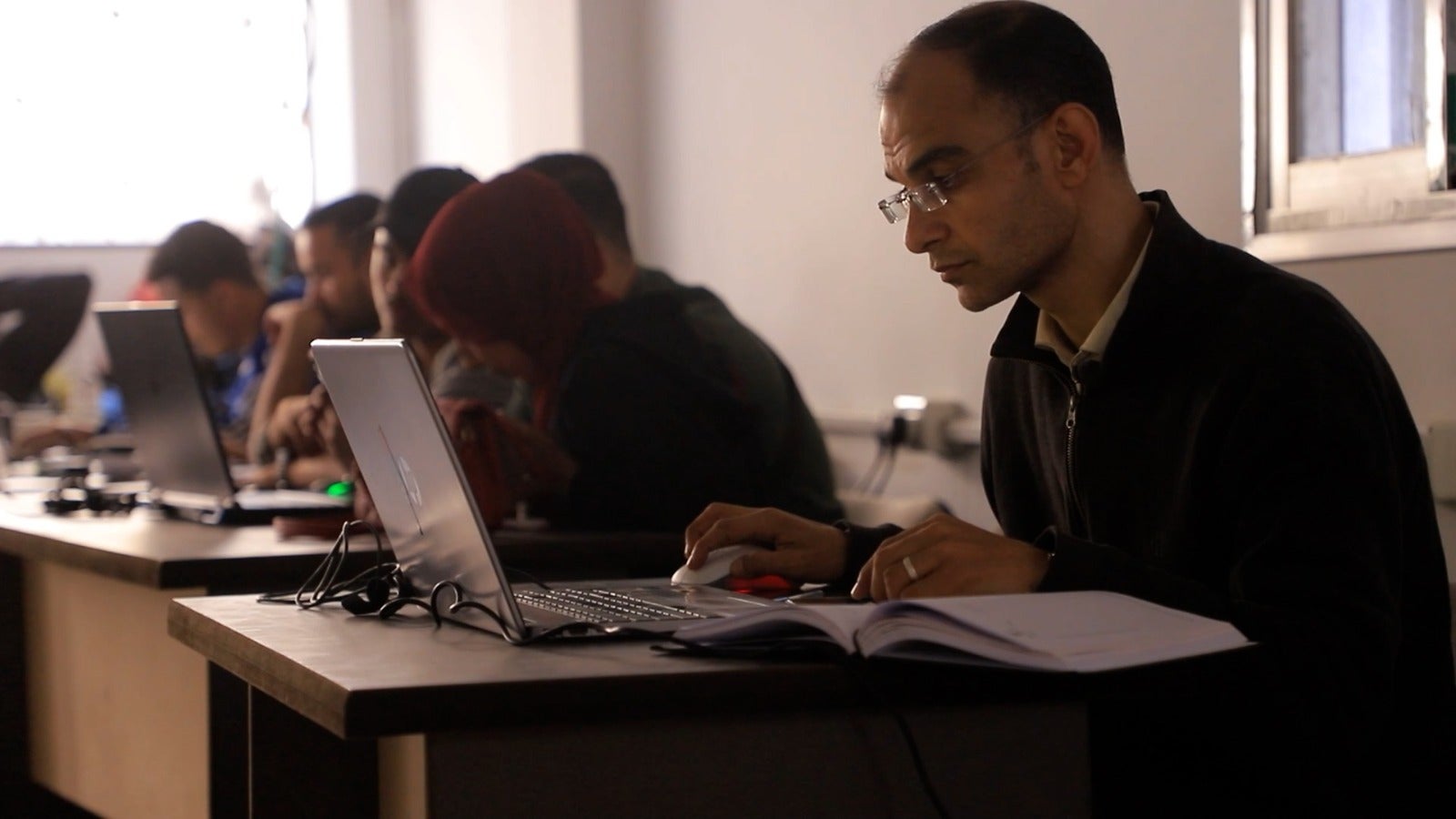Over the past month, I should have been welcoming students to Al-Aqsa University in Gaza. Instead, I find myself teaching online from a crowded internet café, connecting whenever the internet allows – sometimes in brief moments of calm, accompanied only by the hum of a generator and the click of keyboards, and sometimes amid sudden chaos: evacuating on short notice after warnings, navigating intermittent blackouts, or teaching while drones buzz overhead and ambulance sirens wail in the distance.
The university campus has been destroyed; the library reduced to rubble, the classrooms flattened. News of loved ones killed or injured reaches me constantly; so far, 41 members of my extended family have been killed. Yet life and work press on, even as the Israeli ground invasion into Gaza City unfolds around us.
A few days ago, my world was shattered when my 17-year-old nephew, Mohammed, was shot in the neck by a quadcopter drone. The news arrived moments before a project meeting and on the eve of a keynote speech I was to deliver to the Education and Development Forum (UKFIET) in Oxford. My hands trembled and the room seemed to dissolve around me.
I spent that night in the hospital, watching another nephew, Tamer, himself a nurse, working frantically with the medical team to save his cousin’s life. The sight was profoundly moving: two young men bound by family and by blood, one fighting to survive and the other fighting to keep him alive. It was a moment of unity amid devastation.
Hours later, I delivered the keynote virtually, keeping my voice steady, though my thoughts never left Mohammed. Now, as I write this, Mohammed remains in the ICU of a mobile hospital in Gaza City, fighting for his life, when he should be sitting in a classroom, learning, growing, and dreaming of the future. The weight of what could come presses on me with every passing hour.

Yet in Gaza, education continues despite the unimaginable. Even amid grief and fear, the pursuit of learning refuses to stop. But every day, the cost is heartbreakingly real.
Students reach out whenever the internet briefly holds. I receive WhatsApp messages, hurried voice notes, and photos of handwritten assignments captured in fleeting moments of connectivity. This is what the start of the academic year has become in Gaza: education reduced to fragments, pieced together between blackouts or as random bullet fire falls from the skies.
This situation is a stark contrast to what September once meant in Gaza. As a child, the back-to-school period was a ritual of breathless excitement and anticipation. Weeks prior to the first day of school, my father would take me to Souq al-Zawiya, Gaza’s oldest market, to shop for school supplies: pencils, notebooks, candy-scented erasers, a new backpack. Back at home, my siblings and I would carefully wrap our new notebooks in protective film.
On the first day, my mother would wake before dawn to prepare our school lunch – falafel sandwiches made from scratch – while we looked on, sipping sweet tea. That night over dinner, we recounted new tales, ideas, or factoids we’d learned to our bemused parents. Then, schoolbags were opened, timetables spread, and homework began.

These rituals, as joyful as they were, always existed against a backdrop of electricity cuts, resource shortages, and crowded classrooms. They acted as a reminder that Palestinians’ commitment to education has long been inseparable from the realities of life under occupation, and the determination to persevere nonetheless.
Today, however, as the realities of life in Gaza spiral beyond comprehension, these rituals are a distant memory. As a parent of three children who should have returned to school in September, I feel the unbearable weight of what has already been lost – and what this means for their future. They should be waking early, just as I did, full of nervous excitement for the first days back, pulling on clean uniforms, zipping up their new backpacks, and rushing off to the schoolyard to meet friends. Instead, they stay inside, restless, with no books to open, no timetables to follow, no classrooms to step into.
But I fear not just for my children. I fear for an entire generation. More than 650,000 students in Gaza are being denied education for a third year, as 97 per cent of schools have been damaged – including 432 directly struck – with many now serving as overcrowded shelters. Universities, too, have been partially or completely destroyed, depriving tens of thousands of students of the higher education they had worked so hard to reach. Their futures hang in the balance, like Souq al-Zawiya, once alive with the colour and voices of back-to-school shopping, now reduced to silent rubble.
This devastation extends far beyond classrooms. Many students will never return to their schools, will never walk the familiar corridors that once shaped their days. Since the war began on October 7, 2023, more than 18,000 students in Gaza – most of them primary and secondary school students – have been killed. That staggering number would nearly fill the O2 Arena in London, New York City’s Madison Square Garden, or the Accor Arena in Paris.
At this time of year, my work as head of a university department would normally involve watching high school graduates who passed the Tawjihi, Palestine’s final secondary school exams, step into their university lives with hope. Instead, those exams have been suspended for three consecutive years, depriving some 39,000 students of the opportunity to take them.
Students in Gaza are now falling further behind their peers in the other parts of Palestine and around the world, deepening inequalities in educational opportunities and outcomes as a result. Instead, students line up at community kitchens, scavenge firewood for cooking, or sell what little they can to survive. And too many have been killed doing so.
Their circumstances demand that the international community take this moment to reflect: what kind of world allows a generation to grow up without the simple rites of learning, the rituals that shape childhood, and access to that crucible of identity for nearly all of us, school?
Gaza’s youth are running out of time. A ceasefire must be enforced now. It is the essential foundation for restoring education and dignity to a generation at risk. The international community, educators, and policymakers must seize this moment to act: deliver emergency educational resources, support online learning, and guarantee safe access to education for every student in Gaza.
Only with a ceasefire can humanitarian aid flow freely, education initiatives gain the urgent support they need, and the arduous task of rebuilding Gaza’s education sector begin, restoring to children and young people the futures that war has stolen.
Ahmed Kamal Junina is an assistant professor of applied linguistics and head of the English department at Al-Aqsa University in Gaza and a fellow at Bristol University’s Centre for Comparative and International Research in Education
Have your say: Should pensions, investing and saving be taught at school?
In our new global order we must focus on aid, not just development
It is right to recognise Palestine, but it will not change reality
Why you can’t simply ‘demand’ that women have more children
What Trump says about autism isn’t just fake news – it’s dangerous







